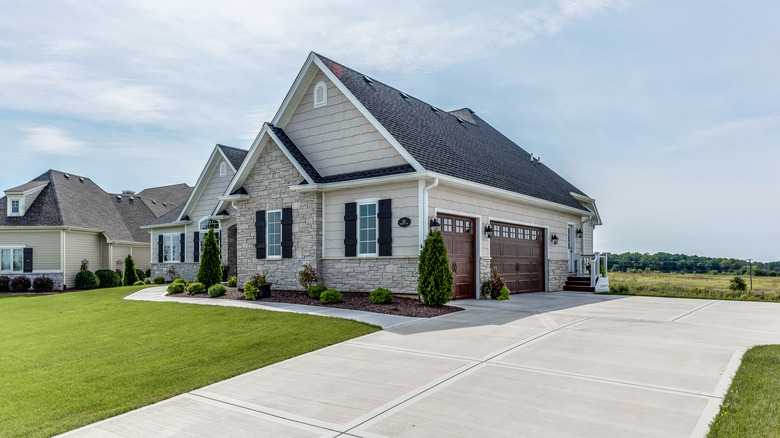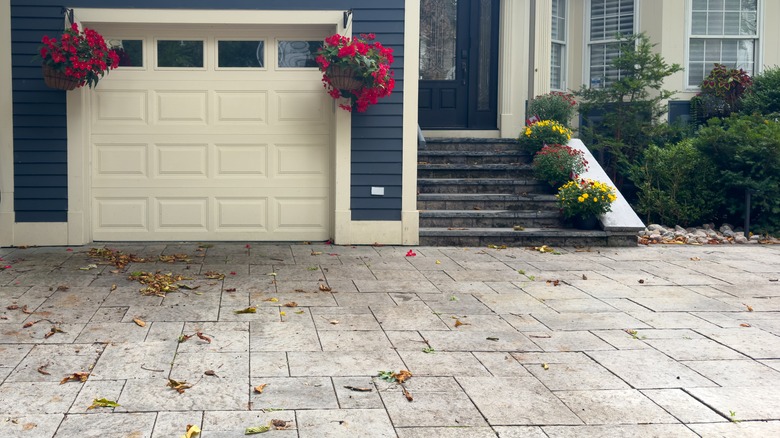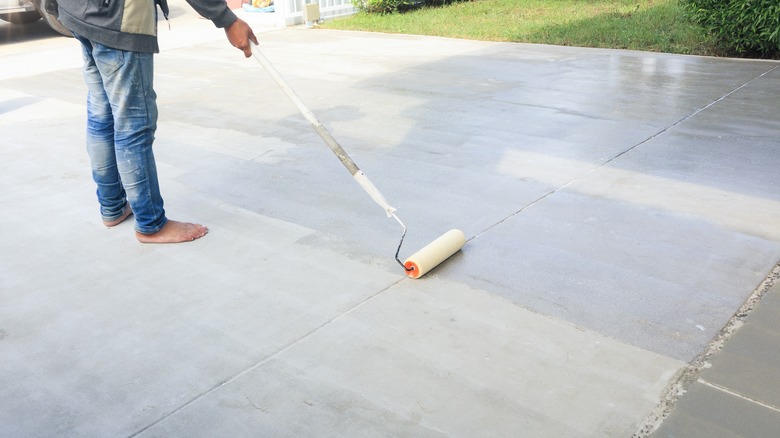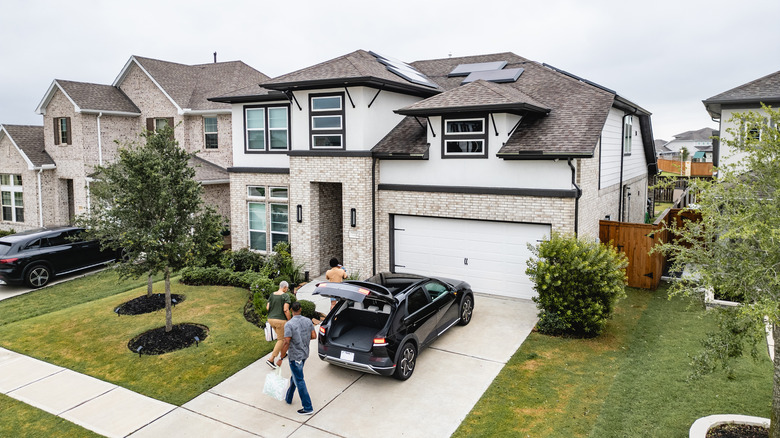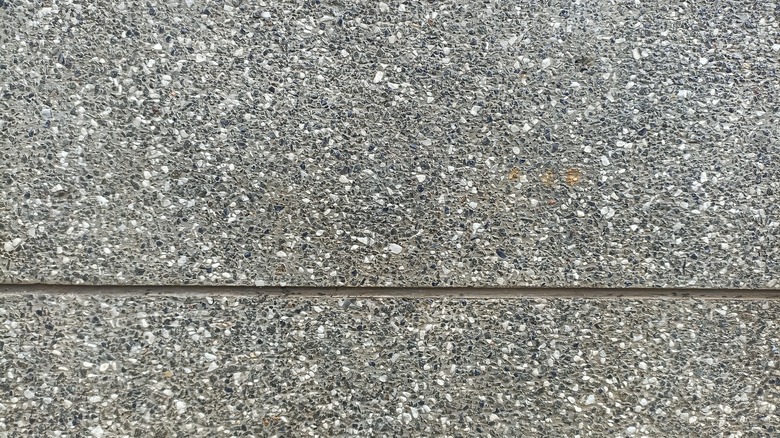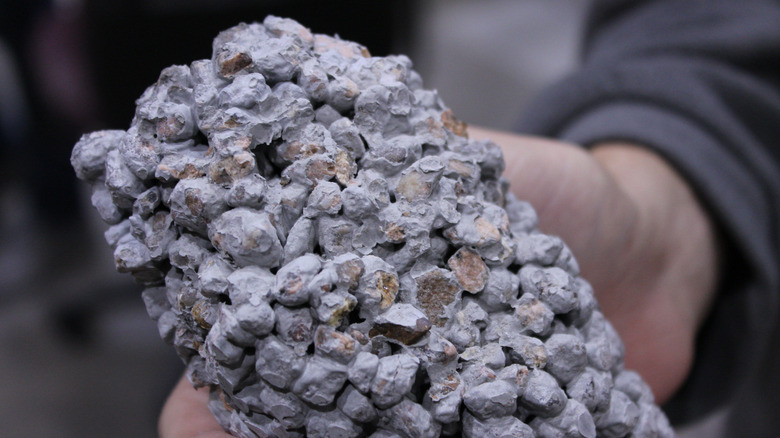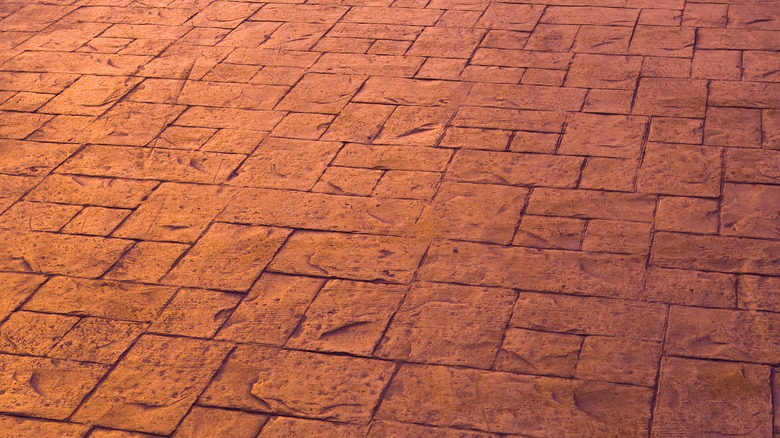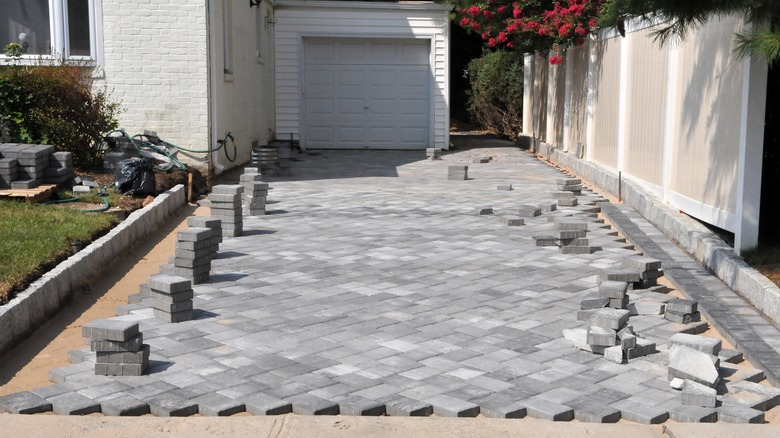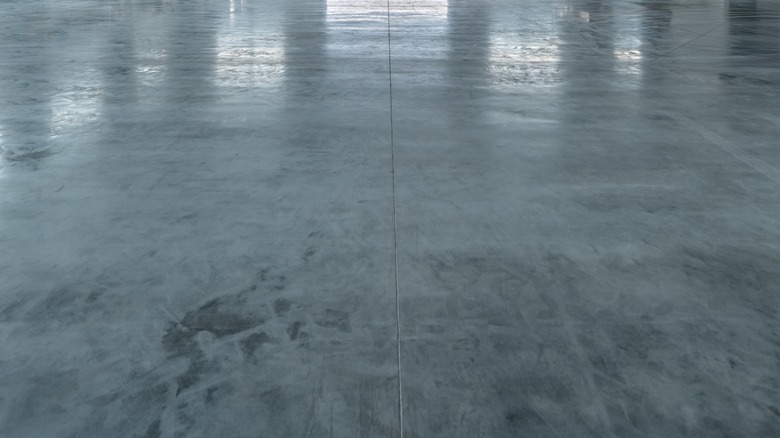8 Types Of Concrete Driveways (& Which One Is Best For Your Home)
You're home's driveway is an important choice. The type of driveway you choose depends on your budget, style, climate, and desired level of maintenance. You'll also need to consider factors like flood risk and texture. Concrete is one of the most popular driveway materials for good reason. It's one of the most cost-effective and durable options on the market. Concrete driveways can last up to 100 years with the proper maintenance. However, common doesn't mean boring.
Whether you'll be installing a new driveway soon or you want to upgrade your existing driveway, there are several types of concrete driveways available to suit every style, budget, and circumstance. For those seeking style and curb appeal, concrete pavers and polished concrete driveways are stylish options. For those seeking a practical option, stamped concrete is the perfect choice. Whatever you have in mind, don't make the mistake of choosing the wrong type of concrete driveway for your home.
Stamped concrete
Stamped concrete gives you the appearance of natural materials like stone and slate at a fraction of the cost. This is made possible by stamping a wide variety of patterns into the concrete's surface. Stamped concrete is generally low-maintenance, but it may require more upkeep than plain concrete. If you choose this option, plan to commit to regular sealing, especially in harsh climates. Overall, stamped concrete is a great option for homeowners who want a high-end look on a budget.
Stained concrete
Staining is a budget-friendly way to upgrade your basic concrete driveway. Concrete stains come in a variety of colors to match any style, and the color won't fade or wash away. Staining isn't right for every driveway, however. Concrete stain is translucent, so if your driveway has imperfections that you'd like to cover, staining won't help. Staining is also a bit of a gamble, as it can react differently to different types of concrete. If you can, test a few stains you like on an inconspicuous area to see how the color develops.
Plain concrete
While they're not flashy or high-end, plain concrete driveways should not be overlooked. Plain concrete is not only very affordable, but it's also durable, low-maintenance, and long-lasting. Plain concrete driveways are also called broom-finished driveways because of their texture. Before the concrete sets, it's brushed to create a subtle texture that provides traction. Low-maintenance requirements plus a little extra grip under your shoes make plain concrete especially suitable for households with typical traffic.
Exposed aggregate concrete
If you're looking for texture that's far from boring, exposed aggregate might be for you. Exposed aggregate concrete driveways are made by removing the top layer of concrete to reveal aggregate, such as pebbles or sand, that was mixed into the concrete. The result is a surface that's unique, natural-looking, and slip-resistant. Installing this type of driveway is more laborious than plain concrete, which means higher costs. You'll also need to seal your driveway regularly to maintain its appearance if you choose this style.
Pervious concrete
Pervious concrete is an eco-friendly option that lets water pass through, preventing runoff and soil erosion. It's a little more expensive to install. However, pervious concrete negates the need for a storm drainage system, potentially saving you money in the long run. Its porous nature requires more upkeep than other types of driveways. Regular sweeping, along with annual pressure washing, will prevent clogs. Despite its high maintenance needs, when installed and cared for properly, pervious concrete has a similar lifespan to that of traditional options.
Colored concrete
Colored concrete is for the more daring homeowners who want to seriously up their curb appeal. Colored concrete driveways are created by adding pigment to the concrete before pouring. The color possibilities are endless, from neutral hues to bright colors. You can even use stencils or stamps to add designs. Colored concrete is generally durable and low-maintenance, but it can fade over time with regular wear and tear. Sealing helps lock the color in.
Concrete pavers
Concrete pavers offer another way for homeowners to show their personality through their driveways. In this type of driveway, individual concrete blocks are arranged to form the surface. Pavers offer incredible design flexibility. Homeowners often choose designs like herringbone and basketweave, but the only limit is your own creativity. Concrete pavers also lend themselves to easy repairs. You can replace individual damaged blocks rather than large portions of the driveway. While the concrete pavers themselves are durable and low-maintenance, the cracks between them are prone to weed growth. Occasional weed control may be necessary to eliminate and prevent weeds from growing in your driveway.
Polished concrete
Polished concrete is sleek and modern, perfect for homeowners who want a subtle upgrade. Polished concrete driveways are made by grinding down the concrete surface until it's smooth and shiny. With nowhere for dirt to settle, an ultra-smooth surface is easy to clean, too. While durable, polished concrete is more slippery than textured options. If you often experience heavy rain and snow, or you have small children, a polished concrete driveway might not be suitable for you.
